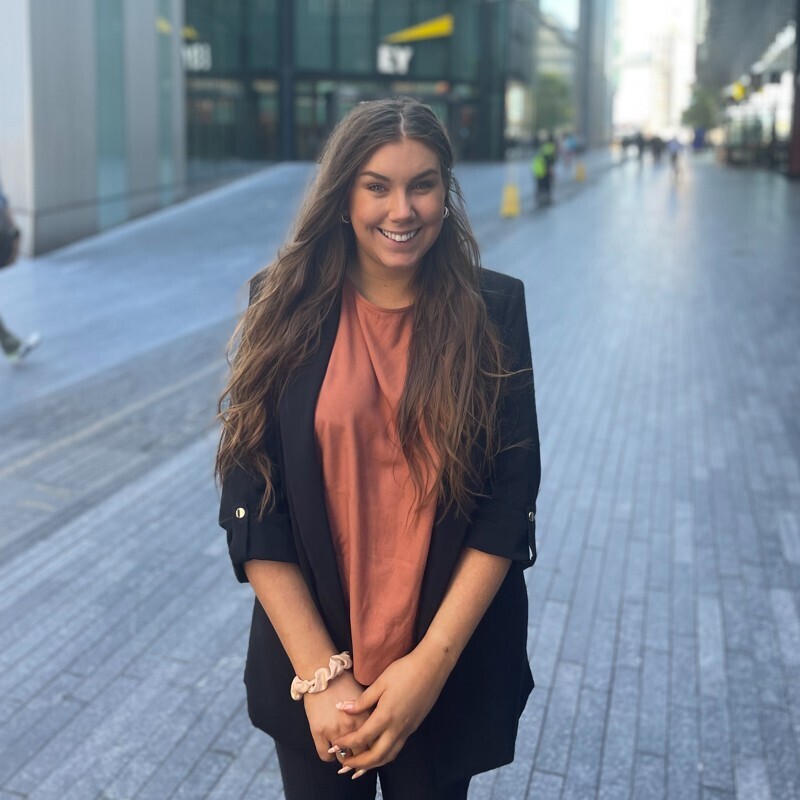
Beth MacDougall from EY delivered a session on Resilience. Here are the top takeaways.
Its normal to be nervous
“The one thing that terrified me literally more than anything was what am I gonna do for work. How am I gonna go into the workplace with this really strange title, this really long list of symptoms? And a degree that I don’t know how to be of use anymore and no experience. I was completely shook. I was absolutely terrified because all I wanted to do was work.”
But Beth goes on to say…
“I wish that I could go back to myself six years ago and say it’s going to be okay. It’s gonna be fine.”
Challenge = Change
“I learned that it is absolutely OK to challenge things in a process or on an application form, or in a procedure that you feel like you’re going to make you feel disadvantaged or unfair. There were plenty of times in an application form that actually will ask you to disclose a disability way before the ‘do you have a disability question’…that was my first lesson that it’s okay to challenge things. And that it’s the only way that we’re going to change things, by challenging and by asking the questions.”
People’s opinions are not your reality
“I remember the first time that I spoke with someone about my disability in a workplace, they actually told me that I was a health and safety risk, and it was selfish of me to be wanting to work in a workplace environment, after speaking to me for all of 2/3 minutes. I just wanted to have a conversation and explain, you know, but I can do this! But then why do I have to explain something? Why am I defined by this label that I have attached to me?”
Beth then speaks about how working as a recruiter allows her to speak to a range of people from all works of life
“We can learn from so many different people by having those conversations and again as recruiters we are in that position where we can constantly speak to a diverse group of people and learn from every single one of them. Giving someone a voice, really means that person is going to be able to bring their true authentic best self to the workplace.”
Play to your strengths (and find out how to play to your strengths!)
“Strength-based recruitment was definitely my friend…We might not have as much experience as persons who don’t have disabilities because it’s been harder for us to get that 0r maybe we’ve needed to take a break at times”
“So strength-based recruitment for me was so powerful in terms of I knew I didn’t have the experience that probably everyone else applying for this job did. I actually had no recruitment experience. I had plenty of student experience, plenty of mental health, well-being, events, development – but it was all dotted around different areas. I could only get small different bits of experience in different ways. I didn’t really know how to combine that. Until, I spoke to someone who help me do that”
Be proud and honest of who you are
“My interview at EY was actually the first time I ever disclosed my disability in an interview, outright. First question, “what are your motivations for EY” – well I have a disability. Straight up there. I’ve heard about this and this is why I did it because EY’s brand was all about a culture of belonging – our world your way. And I really truly believe that. I could see the images I could see the stories and I could see the things EY were doing to support people like me.”
“70% of people with a disability actually have an invisible disability which brings its own challenges. You can hide that until you get into your workplace, but if without disclosing a disability it’s very hard to get the support that you might need to be able to thrive and employ yourself the way that you want to.”
Who you are will show in what you do
Beth speaks about how people with different disabilities are often overlooked for employment and workplace stigma towards those disabilities
“People with disabilities are the largest pool of untapped talent. And that is because we do have, again those natural barriers, and sometimes that natural stigma of – traditionally disabled has meant something that someone cannot do.Whereas I would challenge that… people with disabilities are nature’s greatest problem solvers. We have to learn to live in a world that isn’t actually built always for us. We have to find different ways to do things. Which kind of brings me to my final point in terms of people with disabilities are some of the most valuable workforce that you can bring into an organisation. Those qualities of resilience communication, because you’re constantly having to communicate things, and ask for things and explain. Problem solving, creativity innovation, you name it, a person with a disability has to show that every single day in their life.”
